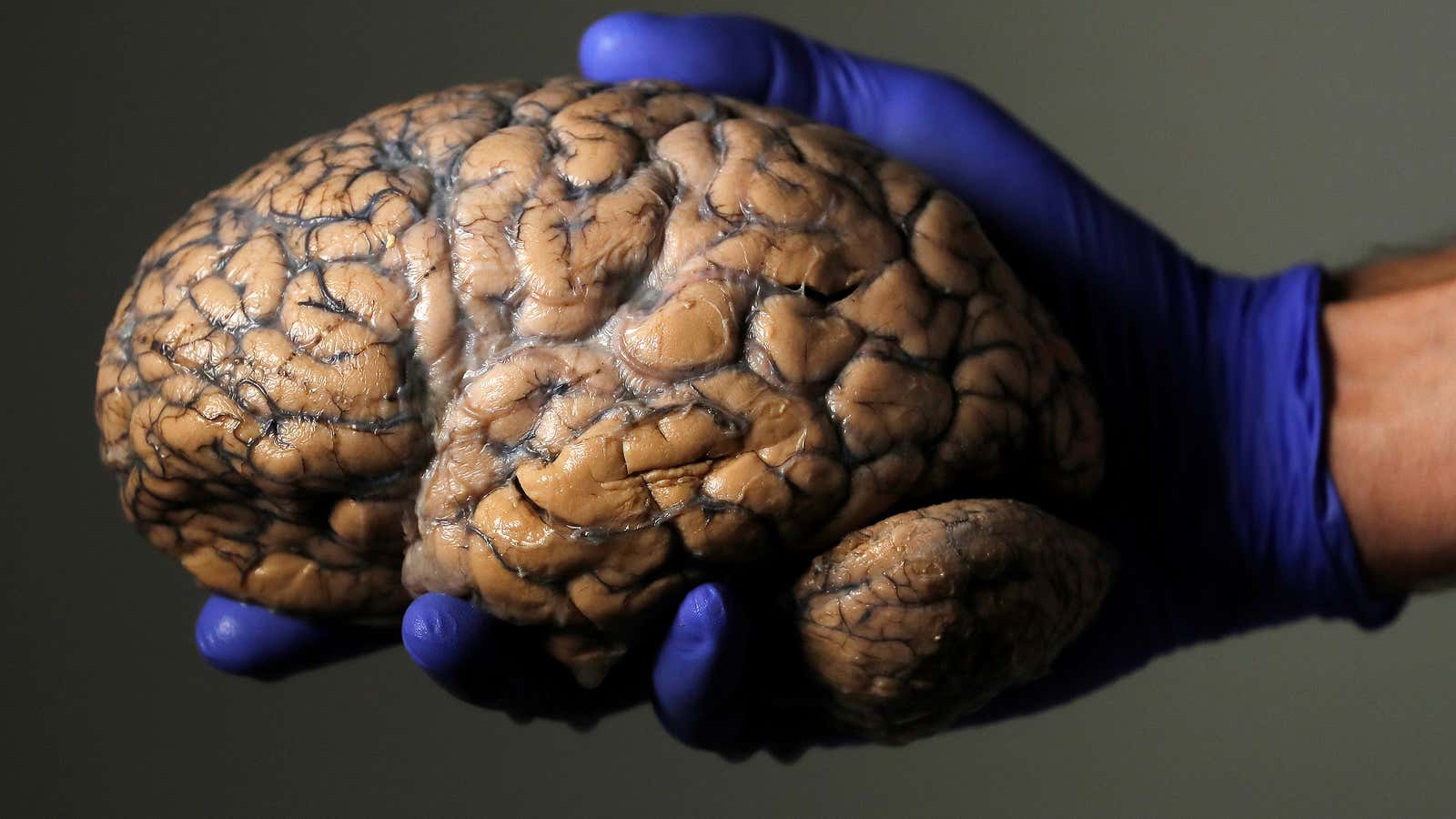Chances are, whenever you see a delightful video—pandas rolling around in the grass, perhaps, or a great standup-comedy set—you quickly forward it to your nearest and dearest, knowing they’ll love the clip as much as you do. A neuroscience study, recently published in Nature Communications (Jan. 30), provides solid evidence that it’s fair to assume your friends will react similarly to videos you love.
Researchers mapped out a social network of 279 graduate students, who filled out a survey as part of their program coursework. A subset of 42 participants volunteered to take part in the fMRI part of the study, which entailed watching a variety of videos—including politics, science, comedy, and music—while fMRI scanners monitored their neural activity. The scientists found that the closer the friends, the more similar their neural responses. These similarities continued even in more distant friendship groups: Friends of friends had less similar brain activity, but still more so than those three degrees removed. “These effects were significant even when controlling for inter-subject similarities in demographic variables, such as age, gender, nationality, and ethnicity,” wrote the authors.
Further, the researchers found that similarity of neural activity could be used to predict closeness of friendship. They trained an algorithm to recognize patterns of neural similarities between friends of various degrees of closeness. From this, the algorithm was able to correctly generalize to other participants, and predict the social distance them based on the similarity of their fMRI responses.
“Neural responses to dynamic, naturalistic stimuli, like videos, can give us a window into people’s unconstrained, spontaneous thought processes as they unfold. Our results suggest that friends process the world around them in exceptionally similar ways,” said lead author Carolyn Parkinson, who was a postdoctoral fellow at Dartmouth College at the time of the study and is now psychology professor at the University of California-Los Angeles, in a statement.
The study suggests that friends respond to the world around them with similar thought processes, particularly in brain regions associated with motivation, attention, discerning others’ mental states, and emotion.
There’s plenty of related research looking at surprising similarities between friends. Studies have found that friendship groups seem to share the same genotypes and personality traits, and are often homogenous along demographic lines, including race, age, religion, education, occupation, and gender.
One paper alone does not imply that friends have the same brains—but it certainly suggests that close groups tend to respond to the world similarly.
